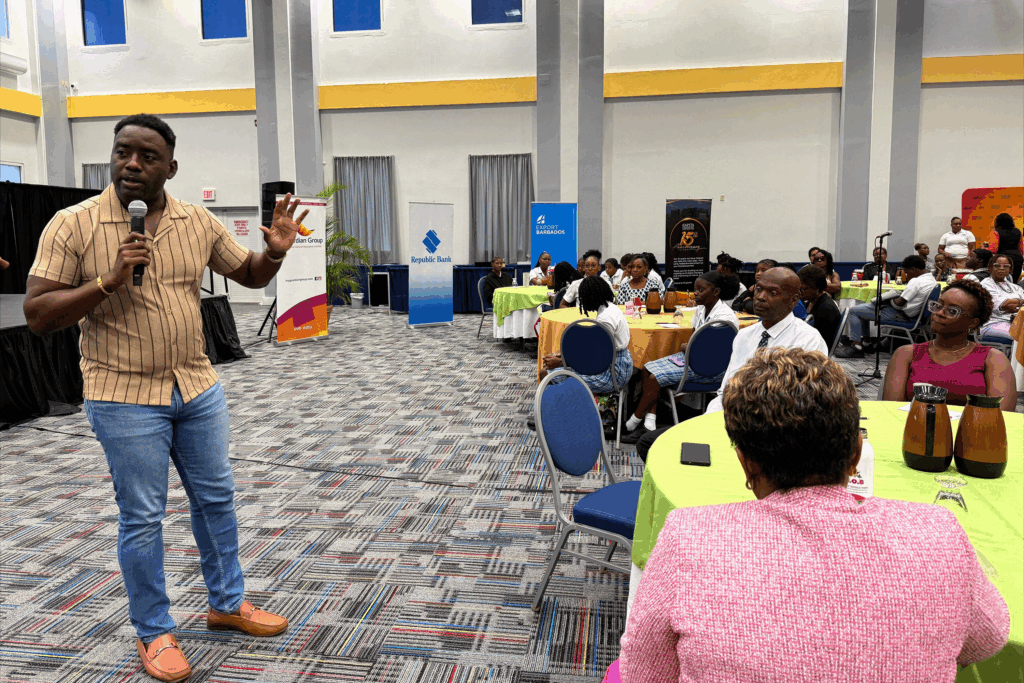Management and organisational behaviour specialist Professor Dwayne Devonish.
Concerns are mounting in Barbados over a growing pattern of associative disorders among young people linked to excessive use of artificial intelligence (AI) and social media.
Management and organisational behaviour specialist Professor Dwayne Devonish cautioned that overreliance on technology could worsen loneliness, impair cognitive function, and expose people, especially young adults and teenagers, to serious privacy risks. He was speaking on Thursday at the Lloyd Erskine Sandiford Centre during the Small Business Association’s Youth Forum programme.
“Be careful with the length of time that you spend with the artificial intelligence tool.
The same way that you cut your time when it comes to social media, that same logic applies with artificial intelligence,” Devonish told the forum.
He highlighted the danger of loneliness, pointing to global studies that show alarming increases in isolation among Generation Z and younger cohorts.
“Technology, including social media, and this would also include artificial intelligence, can worsen feelings of loneliness. Because remember, as much as you would want or feel that the artificial intelligence is genuine or authentic… the reality will hit you that this is only a tool. This is only a device. This is not a real person. And when it hits, then that sense of loneliness worsens,” he warned.
The professor urged young people to focus on building genuine human relationships rather than relying solely on digital connections.
“You have these WhatsApp friendships .
. . Nowadays, everybody is breaking up on Facebook, breaking up on Instagram. It’s like, ‘You know, I’m done with this. So I displayed it to the world to see that I’ve broken up with this guy or this girl . . . ’”
Devonish also sounded the alarm on data security, stressing that private details shared with AI tools could easily be compromised.
“You have to be careful too, because a lot of the information you put in AI, it’s not really private. A lot of that information, and there’s some research that has shown that that information, Google now has already been flying already, pushing people’s information out there . . . . Be careful what you tell the AI, the kind of private information that you share with it. Do not in any way believe that it is 100 per cent secure from other public sites.”
He linked this risk to wider psychological effects, noting that exposure of personal data could trigger the same mental health impacts seen when private images or messages are leaked on social media.
Another major concern raised was the effect of AI on the brain. Citing a Massachusetts Institute of Technology study, Devonish explained that cognitive activity declined sharply among participants who used ChatGPT compared with those who worked without digital tools.
The risk, he noted, was long-term impairment. “Over time, that becomes problematic. So what happens is that you have cognitive impairment over time. And right now, there are studies that are looking at the relationship between that and dementia. And we know in Barbados, dementia is a serious thing.”
He stressed that the answer was not to abandon AI, but to engage it critically.
“Instead of asking AI to generate the essay or the reference, what you can do . . . write the essay with the help of the AI. And you can then submit to the AI and say, tell me what are some areas I can improve here. And the AI can give you, and then you can challenge the AI.”
He revealed that he is preparing a studentfriendly guide on the psychology of AI, set for release by December, which will offer practical ways to benefit from the technology while preserving mental health and cognitive strength.
(SZB)

